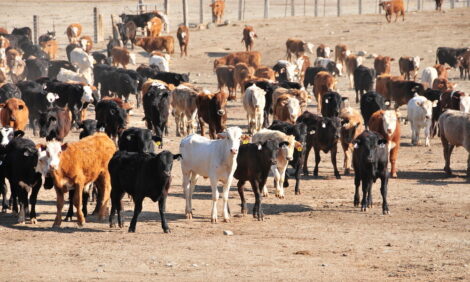



Influence of Anaerobic Digestion Efficiency on Manure
CANADA - A researcher with the University of Manitoba says the characteristics of the manure play a key role in determining efficiency and sustainability of biodigestion as a means of producing energy from livestock manure, writes Bruce Cochrane.|
University news is a Wonderworks Canada Production. Visit us at www.universitynews.org |
As part of a multi-disciplinary research effort, scientists with the University of Manitoba's Faculty of Agricultural and Food Sciences are evaluating the use of anaerobic digestion to produce methane for use as an energy source and developing methods to maximise methane output.
Under optimum conditions methane would be present at about 65 to 70 per cent in the gasses produced.
Dr Nazim Cicek, an associate professor in the Department of Biosystems Engineering, says if the incoming manure varies substantial over time it will cause problems with managing the digestors which are designed to receive a certain strength and flow of manure.
Dr Nazim Cicek-University of Manitoba
If we have high dilutions of the manure through extensive flushing in the barns for instance that would certainly weaken the organic strength of the manure and therefore hamper our work in terms of making biogas out of each litre of manure.
The weaker or the more dilute the manure the less biogas you would produce per digestion vessel volume and that certainly has an impact on the economics.
If you are managing a slurry-based system in our barns we would encourage the farmer to use as little water as possible and therefore not dilute the strength of the manure.
There's other means of treating the manure prior to digestion, whether it be amending it with a higher calorie waste product, that could be a food processing by-product, an on-farm waste or even waste from restaurants, oil waste etc. or by looking at separating the water in advance of digestion and therefore using the solid proportion of the manure instead of using the entire slurry.
Dr Cicek says the make-up of the manure will have a significant impact on how much gas can be produced, on fluctuations in gas output and on the sustainability of the system.
TheCattleSite News Desk


